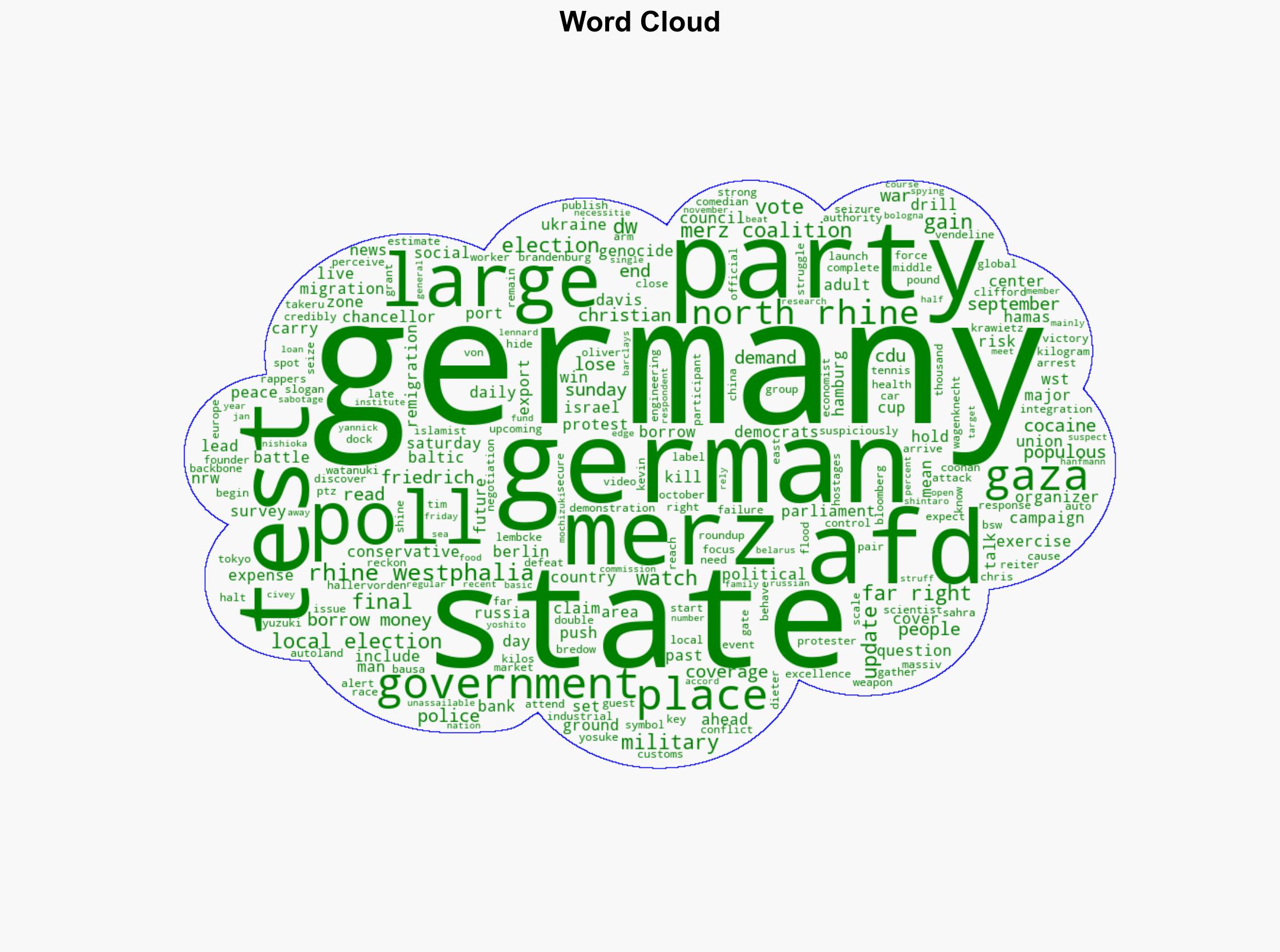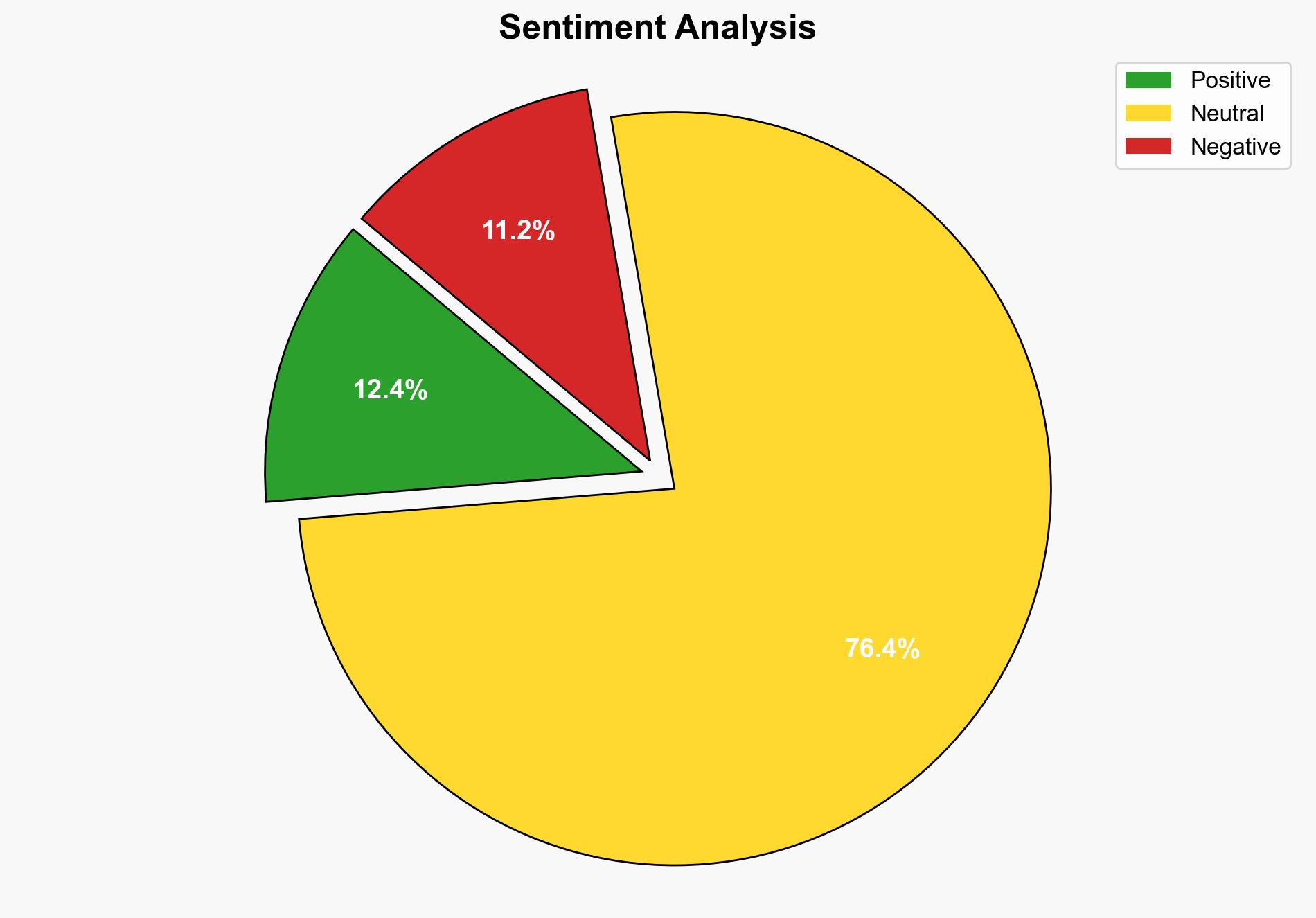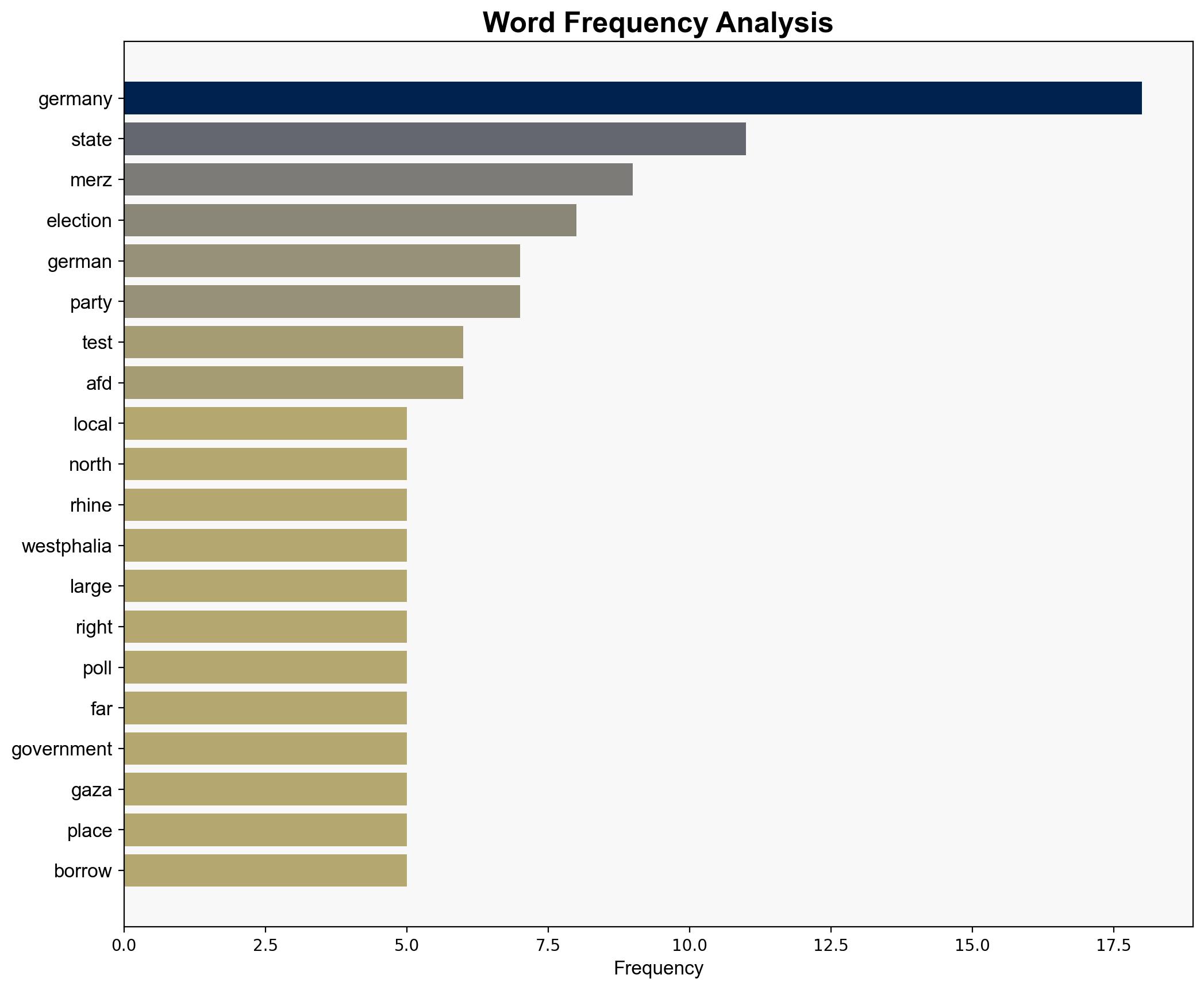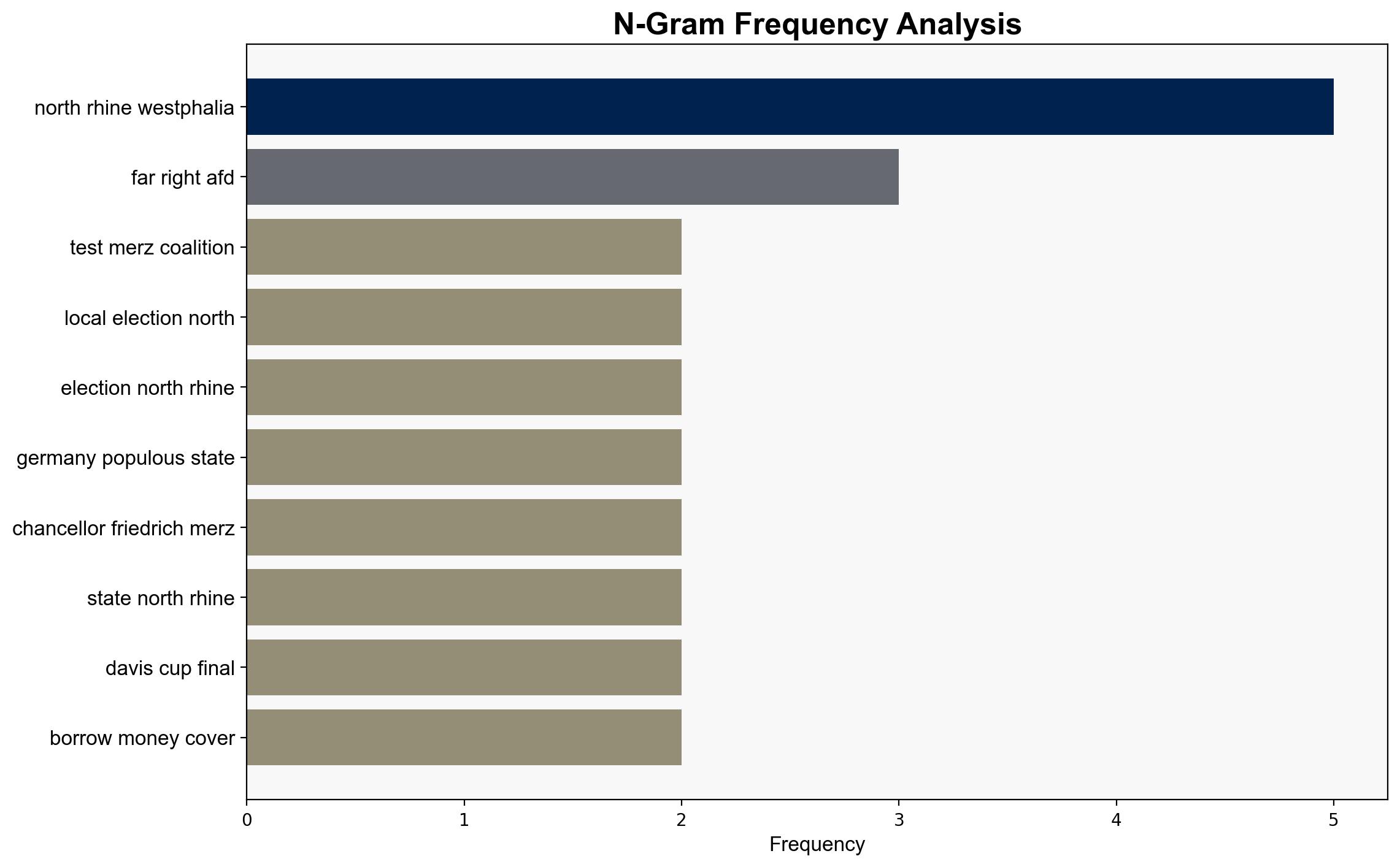Local state election to test Merz coalition – DW (English)
Published on: 2025-09-13
Intelligence Report: Local state election to test Merz coalition – DW (English)
1. BLUF (Bottom Line Up Front)
The upcoming local election in North Rhine-Westphalia is a critical test for Friedrich Merz’s coalition. The most supported hypothesis is that the Christian Democrats (CDU) will lose ground due to public dissatisfaction with the government’s handling of migration and integration issues. This assessment is made with moderate confidence. It is recommended to closely monitor voter sentiment and potential shifts in political alliances post-election.
2. Competing Hypotheses
1. **Hypothesis A**: The CDU will lose significant ground in the North Rhine-Westphalia election due to public dissatisfaction with their handling of migration and integration issues. This is supported by the reported gains of the far-right AfD and public protests against perceived government failures.
2. **Hypothesis B**: The CDU will maintain its position as a dominant force in the state despite challenges, due to its established political infrastructure and voter base. This hypothesis considers the CDU’s historical strength in the region and the potential for last-minute voter consolidation.
Using Bayesian Scenario Modeling, Hypothesis A is more likely given current public sentiment and recent political trends.
3. Key Assumptions and Red Flags
– **Assumptions**: Hypothesis A assumes that migration and integration are the primary issues influencing voter behavior, and that the AfD’s gains are a direct result of these issues.
– **Red Flags**: The potential for last-minute shifts in voter sentiment is a significant uncertainty. Additionally, the impact of external factors, such as economic conditions or international events, is not fully accounted for.
– **Blind Spots**: The analysis may overlook the influence of local issues unrelated to migration, which could sway voter decisions.
4. Implications and Strategic Risks
– **Political Risks**: A significant loss for the CDU could destabilize the current coalition and lead to shifts in national political dynamics.
– **Social Risks**: Increased support for the AfD might exacerbate social tensions and polarize public discourse.
– **Economic Risks**: Political instability could affect investor confidence and economic policies in the region.
5. Recommendations and Outlook
- Monitor post-election political alignments and potential coalition negotiations.
- Engage in public communication strategies to address migration concerns and counter misinformation.
- Scenario Projections:
- Best Case: CDU retains its position and addresses public concerns effectively.
- Worst Case: Significant CDU losses lead to a fragmented political landscape and increased far-right influence.
- Most Likely: CDU loses some ground but remains a key player, necessitating strategic adjustments.
6. Key Individuals and Entities
– Friedrich Merz
– Oliver Lembcke
– Sahra Wagenknecht
– Dieter Hallervorden
– Massiv
– Bausa
7. Thematic Tags
national security threats, cybersecurity, counter-terrorism, regional focus




